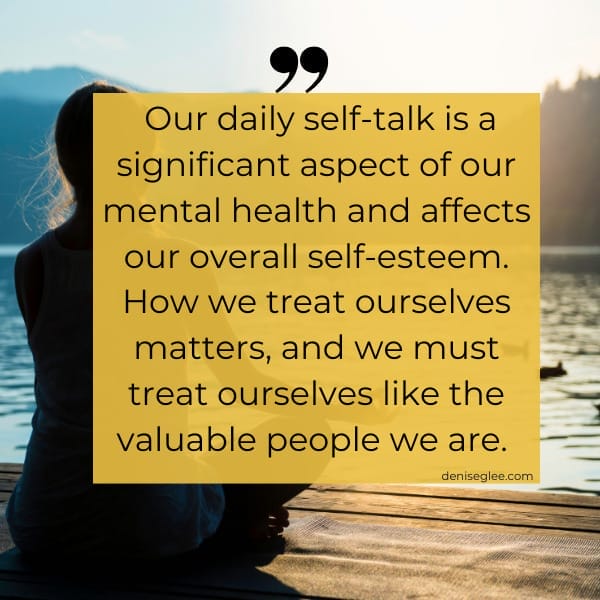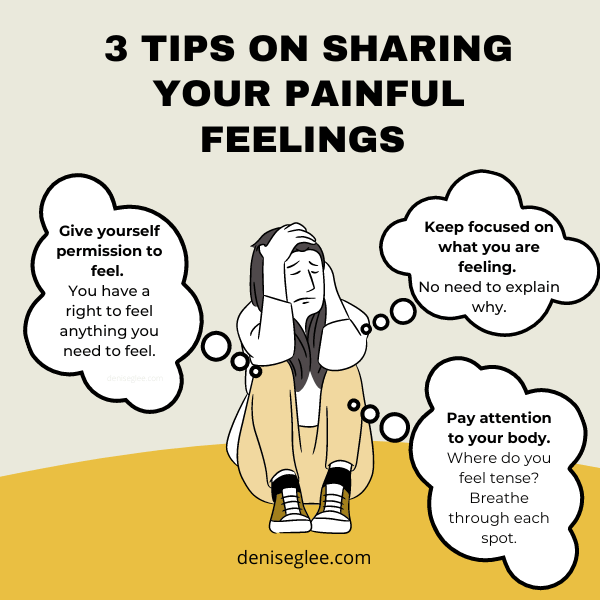
Exploring the Power of Feeling: Navigating Painful Emotions
As an entrepreneur coach, one of the trickiest conversations I have with them is how to recognize their pain-filled feelings without becoming overwhelmed by them. You see, for many of us, we were masters of denying, ignoring, and suppressing our feelings.
People of action cannot be bothered with fears – we have to keep moving! However, muscling away all of our emotions is not helpful for us spiritually or mentally. In this article, we will talk about how you can learn to discuss all of your emotions in a healthy and constructive way.
First, let’s talk about why discussing painful feelings, like fear and sadness, may be difficult for you.
The Struggle to Share: Exploring Why Expressing Feelings Can Be Difficult

Reason 1: Limited Emotional Guidance at Home
My family, specifically my parents, had a limited emotional bandwidth. The only emotions they were happy to share with me were loneliness, pride, and anger. When I tried to share anything of deep meaning or significance with my mother or father, they responded with indifference, denial, or anger.
It should not be a shock that as an adult, with decades of experience of avoiding and deep self-pity, I did not know how to express any emotions other than sadness and anger.
Don’t get me wrong – I have had plenty of happy moments in my life before recovery, but they were always overshadowed by an overall pessimistic attitude. But behind every positive experience, I kept thinking about how things could have been better or different. There were never moments when I fully enjoyed myself or others.
I suffered from a limited emotional bandwidth because there was only a certain way and style I was taught to communicate my feelings.
Knowing how we feel is like a bridge to understanding ourselves and others better. If we don't get that, it's like being stuck on one side, unable to really connect with the people around us.
Denise G. Lee Tweet
How we suffer when we can’t share our feelings with others
Children who grow up in a pain-filled home with emotionally disabled parents lack the tools to fully express themselves because healthy communication was not modeled for them. If your family had problems, opening up about your emotions can be really hard. It makes it tricky to find emotionally healthy people around you.
Because emotionally disabled people lack proper communication skills, they go in one of two directions:
- completely immersed in their pain and become abusive verbally or physically,
- or they suppress, avoid or deny their pain.
Health problems linked to avoiding ones emotions
Those who routinely avoid their emotionally pain usually have some form of immune system or gastrointestinal problems.
If you are interested in reading more about this topic, I recommend three books: “When the Body Says No” by Gabor Maté, “The Body Keeps Score” by Bessel van der Kolk, and “Why Zebras Don’t Get Ulcers” by Robert Sapolsky.
Next, let’s talk about the societal reasons why it is difficult to share our feelings with others.

Reason 2: The Rise of Toxic Positivity
We live in a society that often avoids dealing with the messy emotions of people unless it can be turned into a way to make money, like reality TV shows or tell-all social media posts from influencers.
Because we struggle with expressing our feelings, we often dismiss or downplay emotional pain with something called “toxic positivity.”
What is toxic positivity?
Toxic positivity is when people always tell you to “just be happy” or “look on the bright side,” even when you’re going through tough times. It’s like ignoring your real feelings instead of letting yourself express and deal with them. This can make you feel pressured to be positive all the time, even when it’s not realistic or helpful.
Toxic positivity is frustrating because it tries to make you think your pain isn’t as bad as it seems. It doesn’t really help you heal or resolve your true issues.
Genuine healing takes time and effort, and sometimes people did what they knew, but it still wasn’t right.
When people use toxic positivity, they’re basically saying, “I don’t know how to handle your pain, so I’ll say anything to change the subject.”
Toxic positivity is frustrating because it tries to make you think your pain isn't as bad as it seems. It doesn't really help you heal or resolve your true issues.
Denise G. Lee Tweet
How to avoid toxic positivity and be real with yourself and others
It can be hard to avoid toxic positivity because we often pretend things are okay even when we know they’re not, like our friends, jobs, or homes. We make excuses to avoid facing the truth. But usually, things don’t improve over time.
Being emotionally healthy means accepting all your feelings, not just the good ones.
Next, let’s talk about how you can accept your feelings in a safe and positive way.
Three Tips To Help You Talk About Your Pain-Filled Feelings

Tip 1: Give yourself permission to feel what you want.
For lots of us, we feel we need a permission slip from someone in authority to share our feelings. You may have had strict parents, teachers, bosses or other authority figures in your life who made it very clear on how you should feel in certain areas.
So, for this moment, I want to give you permission to feel your feelings.
All of them.
If you are feeling scared, own that. If you are feeling fearful, own that too. You have a right to feel any way you want to feel. It is what you do with those feelings that matters. No longer should you try to suppress those feelings.
Understanding your feelings and how your body reacts to them is like connecting the dots between what's happening inside you and how you feel. It's a bit like when you play a game and you learn the rules – you start to know what to expect.
Denise G Lee Tweet
Tip 2: Pay attention to what your body is telling you.
Think about things that make you scared, like maybe talking in front of a group or meeting new people. Also, consider what makes you nervous, like maybe taking a test or trying something new. Now, remember a time when you felt really happy, like when you’re playing with your favorite toy or spending time with friends.
Pay attention to your whole body, not parts of it.
While you’re doing this, pay attention to how your body feels. Maybe your heart beats a little faster when you’re nervous, your stomach might feel funny, or you might get sweaty palms.
On the other hand, when you’re happy, you might feel light, your muscles might relax, and you might have a big smile on your face.
Understanding these feelings and how your body reacts to them is like connecting the dots between what’s happening inside you and how you feel. It’s a bit like when you play a game and you learn the rules – you start to know what to expect.
Tip 3: Keep your feelings focused on you.
Often, I hear people say, “X made me feel Z or Y” to which I respond, “you chose to feel Z or Y because you chose to feel that way.” Too many of us give our power away to others because it is easier to deflect than to own our pain. No longer. Now is the time to stay focused on you and you alone.
For example, think about a recent upsetting event. Actually, I will talk about me so you can take the pressure off yourself.
That woman is a bitch!
I had a recent conversation with a person at my son’s school. I didn’t feel comfortable around her. Instead of saying, “This woman is a bitch, and I don’t like her.” I said, “I feel scared,” then I asked myself why I felt sad, to which I replied, “because she reminds me about things about myself I don’t like about myself.”
Keep the focus on “I,” not on them, her, or whoever else that crosses your path.
The image below summarizes my tips on being honest with yourself and others about your feelings. Next, I will share with you my final thoughts.






